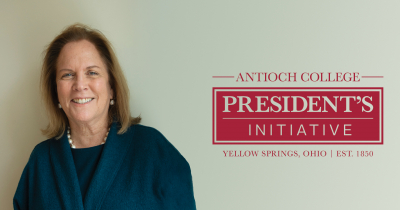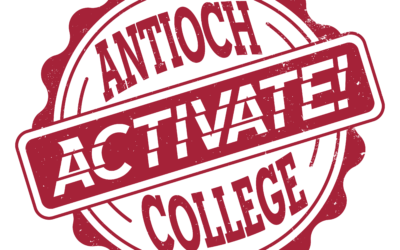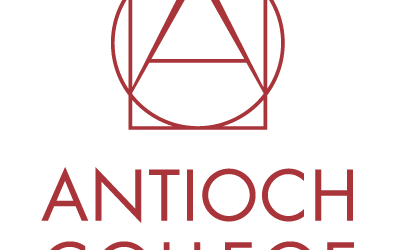Gabe Iglesia ’16, who majored in Political Economy at Antioch, has been working for the U.S. State Department for four and a half years (two of which were with the Foreign Service). He has had the opportunity to work for five U.S. Ambassadors, work in three U.S. embassies, support one Secretary of State visit, volunteer as an accredited election observer in two countries, and represent the United States abroad 24/7. Read our Q&A on the highs and lows of serving as a diplomat, including Gabe’s advice for students who are thinking of pursuing a path to diplomacy.

Gabe Iglesia ’16
Was a career in Diplomacy always the dream?
“I was interested in the international relations field as early as middle school. At the time, however, it wasn’t clear what career options were out there. In my first year at Antioch, a recruiter from the U.S. Department of State came to talk about careers in the Foreign Service, and he gave insight into the internship opportunities at State. I would ultimately get to serve two State Department internships for my third and fourth Co-op jobs, which in turn led me to essentially remain with the State Department after graduation.”
With the goal of becoming a Diplomat in mind, was studying at Antioch an easy decision?
“I distinctly remember that critical decision-making period over eight years ago. It came down to choosing between Antioch and another liberal arts college that had an established IR program. For my parents, the Horace Mann Fellowship was a big deal, but I knew I very much wanted to study IR. However, what Antioch had to offer was much more than just the degree. Going to Antioch was an opportunity to be a part of a reopening college – the aptly named “150-year-old startup.” The opportunity to do a minimum of four Co-op jobs also provided much-needed practical experience. Antioch for me was “the road less taken,” and as Robert Frost puts it, that has made all the difference. I 100% believe I would not be where I am now if it wasn’t for Antioch.”
What are some of the difficulties that come with the job?
“The Foreign Service requires us to serve in very difficult hardship assignments – some of the toughest and most dangerous places in the world. Some have to serve in places where they can’t bring their families with them. And it is not at all uncommon for folks to miss key occasions back home because of service obligations that prevent them from traveling back to the United States, including weddings, graduations, funerals, and other events with loved ones. Remember that a majority of diplomats aren’t serving in Europe!”
How has the COVID-19 pandemic impacted your work as a Diplomat?
“Like most industries and businesses, diplomats have had to adapt to the era of social distancing, teleworking, and virtual interactions. This is a particular challenge in a field that critically depends on face-to-face interactions. For most of my colleagues who interact on a regular basis with interlocutors outside the embassy, the pandemic makes these interactions more difficult. This forces us to come up with creative ways to continue maintaining our relationships while also protecting the health and safety of the local community.”
Was there a class at Antioch College, or perhaps a teacher, in retrospect, that helped shaped your career the most?
“I really enjoyed the political economy courses I took at Antioch with Hassan Rahmanian and Sean Payne. These included Hassan’s course on global political economy and Sean’s course on public policy. I also had the opportunity to do an independent self-study with Sean on advanced topics in international relations theory. It would be interesting to revisit those academic theories now that I have been working for a few years with State. I also fondly remember the Critical Thinking course I took with Lara Mitias, which really made me think about how we frame different arguments and the assumptions underlying them.”
What advice would you give for current students pursuing your path?
“When I attended Antioch, I majored in political economy. But looking back at these past few years being out in the “real world,” I would say the time that is most valuable during your undergraduate years is the time spent gaining practical experience, especially from Co-op jobs. The Foreign Service does not require an IR degree; artists, scientists, journalists, and people of all walks of life have all joined the ranks of the Foreign Service with the same desire to serve. Also, if you ever get an opportunity to do an international Co-op, I strongly recommend you do. I am a firm believer that travel broadens the mind, and I believe Americans would be a lot more open-minded about the world if they traveled more.”




